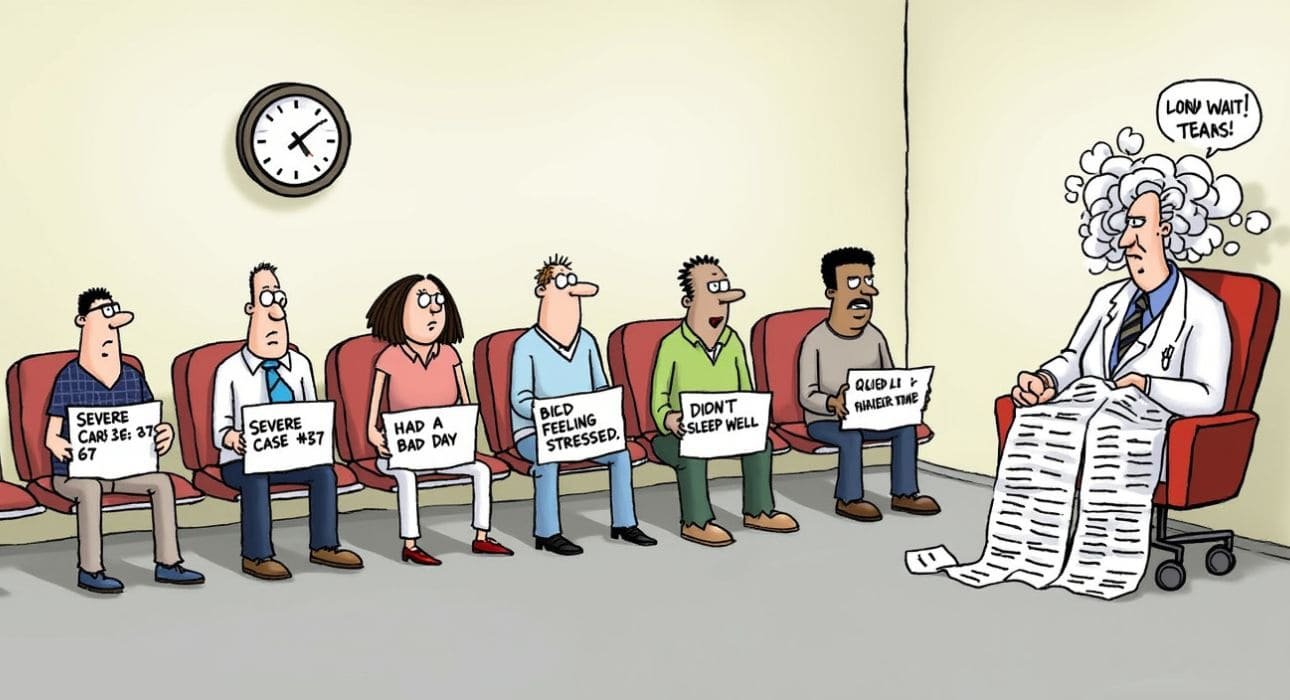In recent years, increased awareness around mental health has led to greater openness in discussing personal struggles. Conversations about anxiety, depression, and other mental health conditions have gained significant traction, fostering a more mature approach to disclosure. Schools, workplaces, and governments have incorporated mental health programs to ensure that individuals in need get help. Social media has contributed enormously to this opening of discussion, with influencers, celebrities, and regular people sharing their experiences.
This is encouraging, as this might help get rid of the stigma and make it easier for people to ask for help. With increased awareness, access to therapy, counseling, and medication has improved, encouraging more people to prioritize their mental well-being. Society has begun to acknowledge that mental health must be given due attention, just as physical health, and efforts are now underway to normalize discussions around this subject.
However, Some think we’re going too far with mental health awareness. Has talk about mental health gone too far such that it becomes counterproductive? Do we label normal emotions as disorders? Are talks about resilience now talks about raw sensitivity? These are some further questions yet to be addressed.
The Positive Effect Of Mental Health Awareness
Awareness about mental health has played a great deal. In earlier times, mental disorders were generally overlooked or considered a manifestation of weakness. People suffering from anxiety or depression were often advised to “get over it.” Awareness has allowed more people to understand that mental health problems are valid concerns deserving attention just as much as physical health issues.
One of the greatest benefits of mental health awareness is that seeking help has become more accepted and less stigmatized. Therapy, counseling, and medication are now viewed as essential tools for well-being rather than sources of shame. Schools, workplaces, and even governments are stepping up to the plate in mental health by providing operations and support. This step has led to better treatment options and more open discussions on mental well-being.
The Possible Downside of Too Much Awareness
Despite numerous positives, some argue that raising mental health awareness is a bit excessive. The several reasons why are stated below:

1. Over-Diagnosis and Self-Diagnosis
With plentiful information online and social media regarding mental health, more people try to self-diagnose their mental issues. While being aware of one’s emotions is a good thing, it does not mean that everyone who is experiencing mood swings or some stress is suffering from some serious mental disorders. Sometimes, normal human emotions like sadness, stress, or frustration are mistaken for clinical depression or anxiety.
Over-diagnosis can lead to needless medications or treatment. For instance, a person feeling low for a few days might mistakenly believe they are depressed, when in reality, they may just need time to process their emotions and recover naturally. It diverts attention from those who may require medical assistance.
2. Victim Mentality
There is a concern that overemphasis on mental health might promote a victim mentality. Several people would use their mental health turmoil as a means to escape any responsibility or enticing situation. Mental illnesses can, indeed, be disabling. However, seeking help is one thing; using mental dysfunction as an excuse not to help oneself is sheer madness.
For instance, if someone is stressed out about work, he/she may believe that he/she has an anxiety disorder instead of learning how to manage personal stress better. Anxiety disorders require proper treatment, but not every instance of stress indicates a mental illness. Alongside raising awareness, it is equally important to promote resilience and healthy coping skills.
3. The Commercialization of Mental Health
With the rise in mental health awareness, many companies now offer products and services claiming to support well-being—from self-care kits to costly therapy apps. While some are genuinely helpful, others may appear to take people’s vulnerabilities for profit.
In some instances, one may be tempted to purchase products such as stress-relief candles or meditation apps without proper scientific backing or not knowing what they exactly need. Certainly, these can be relaxing but they cannot substitute for professional mental health care. It is important to be discerning as to how the promotion of mental health takes place to ensure persons receive proper support instead of spending money on ineffective solutions.
4. Overwhelming the System
As awareness increases, so does the number of individuals choosing mental health help. While this is welcome, it has started to put immense pressure on mental health services. In some areas, therapy and counseling are in such high demand that it is quite challenging for one with severe mental problems to get timely help. If more people seek professional help for minor emotional struggles, those with severe mental health conditions may face longer wait times for necessary treatment.
Mental health resources should be available for everyone, but we also need to ensure that those who need urgent care can access it without long delays. Encouragement to adopt healthy coping mechanisms against everyday stresses could aid in alleviating the burden on mental health professionals.

5. Overemphasis on Feelings Over Action
Mental wellness is rightly in the media spotlight, but sometimes the focus leans too heavily on emotions rather than taking action to improve the situation. While acknowledging feelings is important, building resilience and finding solutions to life’s challenges are equally crucial.
By way of example, if someone becomes sad because they did not perform well on a test, they could channel that unpleasant feeling into taking action, such as studying harder so that the next time will be better. Learning to handle setbacks and challenges is an important part of personal growth.
Finding A Balance
Mental health awareness must hit the right balance. Although it is vital to recognize struggles with mental health illness, resilience, coping skills, and personal responsibility also need to be encouraged. A healthy attitude toward mental health must include the distinction between normal emotional responses and clinical conditions, which would best guarantee that all needed mental health resources are indeed accessible to all who will need them without over-commercializing mental well-being. By encouraging healthy habits, emotional fortitude, and problem-solving, we can have in our culture a situation where mental health gets the attention it rightly deserves without making others dependent on medicalization and over-validation.
So, does this mean we should stop voicing our opinions on mental health? Absolutely not. Mental health awareness should live on, and people should be encouraged to seek help whenever they need it. Yet also, we ought to be mindful of how we go about discussions about mental health.
These are the ways to shine the light of balance on life:
- Enabling resilience – Rather than labeling every struggle as an issue of mental health, students should learn to cope with stress, defeat, and other negative emotions.
- Make the Difference Between Normal Emotions and Mental Illness – Always be aware of the fact that it is possible to be sad, anxious, or stressed, but normal and that this has no correlation with a diagnosis of mental illness.
- Leverage Mental Health Services – Make sure people needing help are able to seek it out on time without all kinds of red tape getting in the way.
- Don’t Fall for Commercialization – Don’t invest money in products that really won’t do good towards enhancing mental justice.
- Encourage Physical Activity – Physical exercise, sleep right, making friends and other things that can bring about some natural mental healing should be practiced.
Conclusion
Awareness and concern for mental health issues have contributed more good than harm to the cause throughout its history. Stigma was eliminated; people were given the courage to open up and seek help, and mental well-being became a priority. At the same time, an overemphasis on mental health will cause harm and hurt good things overdone are bad. Balance must be struck in dealing with mental health problems to ensure that some important exemplary qualities are even promoted in people’s lives, namely resilience, personal responsibility, and healthy willpower.
It’s time we struck a balance in discussing mental health so that we could contribute to their well-being without sacrificing personal development.













Leave feedback about this